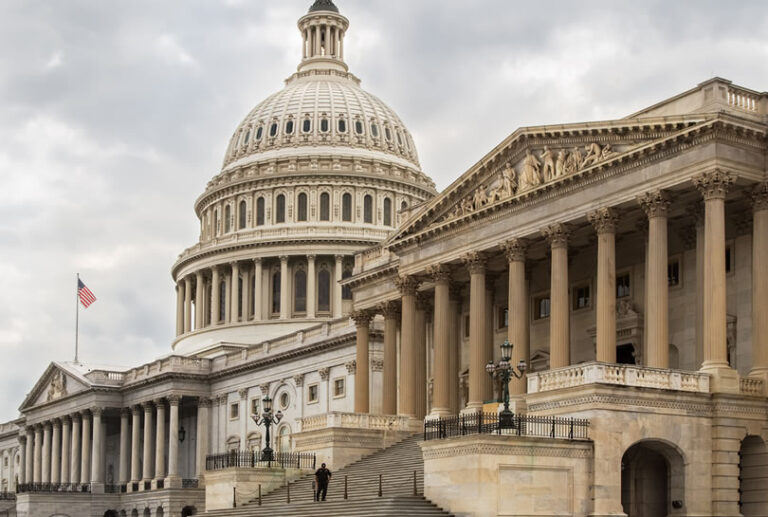Nov. 30, 2020 – Job one for President-elect Joe Biden is the response to the COVID-19 pandemic, which will represent a “marked difference in energy and tone” than that offered by the current administration and likely will include a new FDA Commissioner as well as the roll-out of COVID-19 vaccines, according to Kate Rawson, senior editor at Prevision Policy.
Speaking at a Nov. 19 Coalition for Healthcare Communication webinar, “Healthcare Policy in a Post-Trump World” Rawson stated that the incoming Biden administration is developing a comprehensive COVID-19 plan that includes providing access to regular, reliable and free coronavirus testing and $25 million for vaccine manufacturing and distribution.
As for what will happen to Operation Warp Speed – the industry and government partnership to develop and distribute COVID-19 vaccines – post-election, Rawson noted that Center for Biologics Evaluation and Research Director Peter Marks is the person who coined that name, and that Marks, a career FDA official, will be making the final decisions on approving or authorizing any vaccines.
As of the Webinar date, Pfizer had announced that its vaccine clinical trials were showing a 95 percent effective rate and Moderna had announced that its trials were showing a 94.5 percent effective rate. “That is incredibly exciting,” Rawson noted. “It is much higher than what the FDA has set as the lowest benchmark,” she said, which was at least 50 percent effective. Since the webinar, AstraZeneca announced that its vaccine trials were showing a 70 percent effective rate.
Although these announcements of efficacy and safety profiles are promising, Rawson cautioned that right now, “we have a press release saying that this is true, but there is so much more information to follow. The good news is that it will be done in a very transparent way.” She explained that companies will submit their packages for an Emergency Use Authorization (EUA) to the FDA; the EUA is not a full biologics license application (BLA), but it is what FDA officials are calling “EUA Plus.”
The EUA Plus “doesn’t have all the bells and whistles that you would see in the BLA,” she said, and a key difference is that the products for which EUAs are granted will need to provide two months of safety follow-up data, which is between 25 percent to 50 percent less than what a normal safety database would look like.
“So, it’s significantly less, but we are also in the middle of a pandemic and we need to get the vaccine out quickly,” according to Rawson. She added that the agency has set aside Dec. 8-10 for its vaccine advisory committee to hold discussions, and that the Centers for Disease Control and Prevention’s Advisory Committee on Immunization Practices (ACIP), which normally would not begin setting vaccination guidelines until after the FDA approves or authorizes a vaccine, is already working on those guidelines to advance the process.
“As these vaccines are made available to the states for immunization, hopefully companies will be able to keep clinical trials enrolled and continue to collect data and a full BLA will follow sometime next year,” Rawson stated.
“There are huge logistical challenges to getting a vaccine out to everyone, and this obviously is happening in the midst of a change in administration when the outgoing president refuses to concede,” she remarked. “But I think we are going to break a record here for sure.”
Webinar moderator and Coalition Executive Director Jon Bigelow asked Rawson a question from the audience about the vaccine and CBER’s Marks: “Can we trust this guy with our lives? In other words, should we take this vaccine when it’s available?”
“Yes, you can trust Peter Marks. He is a career scientist at FDA, he is extremely thoughtful, extremely smart,” Rawson replied. “He is also really careful. He has said, over and over again, ‘we are going to follow the process, we are going to follow the data, and we have no internal timeline on when this is going to get done,’” she explained.
“If Peter Marks tells me it is safe to take this vaccine, I will take it,” she shared with the webinar attendees, noting that if the vaccines’ efficacy rates are truly a good deal higher than 50 percent, they could change the need for masks and social distancing. “A 95-percent effective vaccine? That’s up there with measles and polio [vaccines]. That, to me, is the benefit-risk balance, and sways the [equation] toward taking it.”
She advised that people concerned about specific risk factors or age groups should take a look at the data and take the advice of medical professionals, because “some of these vaccines as they come out could be better in certain populations than in others. I believe it will be a very transparent process, so if you want to dig into the data, you will be able to.”
Under the incoming Biden administration, it is highly unlikely that current FDA Commissioner Stephen Hahn will be retained, according to Rawson. “I think it’s fair to say Commissioner Hahn made some mistakes and made [them] early in his tenure in acquiescing to White House demands on how the agency responded to the coronavirus pandemic,” she said. “He certainly seemed to find his footing later on, which I think was welcome to many agency-watchers and those who support the FDA.”
Moving forward, she told Coalition webinar attendees, “the good news is that we can quickly turn around any damage to the FDA’s reputation with a new commissioner under the new administration.”
Click on the Resources tab to view Rawson’s slides from the Nov. 19 Coalition webinar; the Coalition’s next webinar, “What’s next for the FDA in the Biden administration,” will be held Dec. 16 from 12 p.m. to 1 p.m. and will feature insights from Nancy Bradish Myers, president of Catalyst Healthcare Consulting. Click here to learn more and to register.




